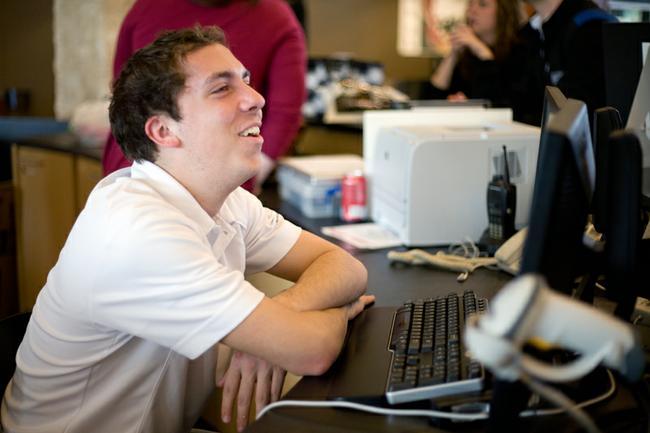After the overindulgence of the past holiday season, most people take a step back and look at their thinner wallets and smaller bank accounts in surprise, mixed with a little bit of horror.
To stave off the cliché of being a broke college student, MU students head into the world of part-time work.
The busy Plaza 900 dining hall employs students in various positions from serving and supervisin to washing dishes in the back.
Plaza 900 manager Monelle Hausheer said there are currently about 140 students employed at the dining hall.
“Not all of them are (working) yet,” Hausheer said.
Hausheer said that more students are employed this semester than last semester.
Freshman Kelly Sineni started work Sunday, a week into the new semester. She held off starting work until this semester to acclimate to life at MU.
“Last semester for me was kind of getting used to college and living by my own schedule,” Sineni said. “I figured I’d give myself first semester, and now it’s being an adult.”
In Sineni’s orientation, she noticed other students starting at the same time as her.
“There were probably 16 people and four or five who are working at Plaza,” she said.
Laura Pieter, Career Services Assistant in the MU Career Center, said working on campus is convenient for many students, especially those without cars.
“It’s a win-win for a lot of students,” Pieter said.
The employers on campus are also used to packed student schedules.
“They work really well with you, scheduling-wise, so it doesn’t interfere with class,” Sineni said about Plaza 900.
Working at an on-campus job makes it painless for students to later work at new jobs off-campus. In addition, on-campus work tends to ease students into the transition of working, Pieter said.
“In general, it helps them gain some really great experience as well as connections with people on campus,” she said.
The Division of Student Affairs and Business Services teamed up with the Career Center to create the Campus Augmenting Student Hires Program. Partially created because of the current economic climate, the program was set up to increase the amount of on-campus jobs available to students.
The incentive-based program encourages a department to hire students to fill jobs because it pays back the employers for parts of the students’ wages, Pieter said.
“(The program) will reimburse half of the student’s wage for the year, up to $1,000,” she said. “It allows (employers) to hire students who may not have been hired before.”
According to the program’s website, more than 650 students were hired during 2009-10 through as many as 100 campus departments’ participation.
The CASH program was renewed for the 2012 fiscal year, which encourages hiring students. This can solve the issue of disparity between the number of students looking for jobs and jobs available.
“Obviously, there are more students that want to work than jobs available,” Pieter said. “We just try to help students.”








